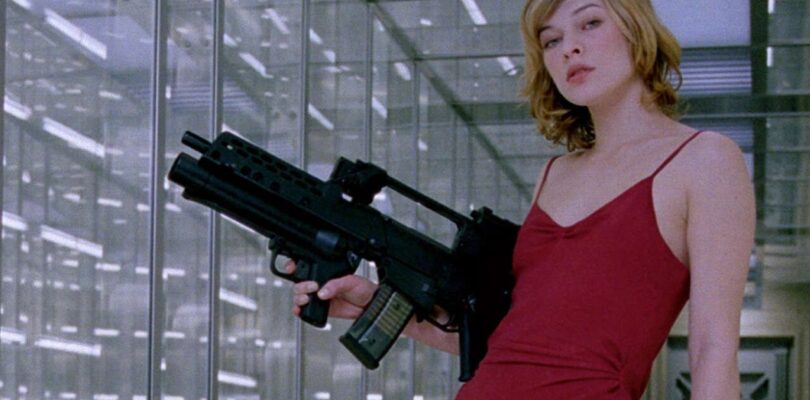When Resident Evil stormed into theaters on March 15, 2002, it faced a gauntlet of skeptics: video game diehards craving a pixel-perfect adaptation of Capcom’s survival-horror masterpiece and critics wary of another lackluster game-to-film flop. Directed and written by Paul W.S. Anderson, this bold reimagining introduced Alice (Milla Jovovich) and traded slow-burn scares for high-octane action. Despite mixed reviews, its box office haul and enduring influence make it a misunderstood classic worth defending. Here’s why Anderson’s first Resident Evil film is a genre triumph, backed by stats and fresh insights.
A Box Office Hit That Sparked a Franchise
The numbers don’t lie: Resident Evil was made for a lean $33 million and raked in over $102 million worldwide, per box office records. That’s a triple return on investment—a feat many bloated blockbusters can’t claim. Compared to 2001’s Lara Croft: Tomb Raider, which needed a $115 million budget to hit $274 million, Anderson’s efficiency shines. Its $40 million domestic take and $62 million internationally proved it had global legs, paving the way for sequels like Resident Evil: Apocalypse (2004), which grossed $129 million.
This wasn’t dumb luck. Resident Evil capitalized on the early 2000s zombie craze and Matrix-inspired action, delivering a mid-budget hit that launched a franchise now worth over $1.3 billion. It’s a testament to Anderson’s knack for turning modest means into massive returns.
A Clever Twist on the Games
Purists griped that Resident Evil didn’t follow Jill Valentine or Chris Redfield’s storylines, but Anderson’s choice to craft a prequel-like tale in the Umbrella Corporation’s Hive was a smart pivot. Alice, an amnesiac operative, navigates a T-virus outbreak with a squad of commandos, facing zombies, mutant dogs, and that infamous laser trap. This wasn’t a betrayal of the games—it was a cinematic remix.
Anderson aimed to dodge the curse of slavish adaptations, giving Resident Evil a fresh identity while sprinkling in fan nods like the Red Queen and Licker. Unlike 2021’s cluttered Resident Evil: Welcome to Raccoon City, his film welcomed newcomers without alienating players. It worked—both as a standalone thriller and a franchise springboard.
For more on its place in the series, see this Resident Evil film series breakdown.
Action-Horror Done Right
Critics often knock Anderson for prioritizing flash over depth, but Resident Evil nails action-horror fusion. The laser corridor scene—tense, gory, and visually stunning—ranks among early 2000s cinema’s best. Paired with Marilyn Manson’s gritty score, it channels the games’ trap-laden vibe with flair. Practical effects, like the snarling zombie dogs, anchor the sci-fi chaos in raw thrills.
Yes, the dialogue’s cheesy, and the CGI shows its age, but the film’s relentless pace and atmosphere still deliver. It’s not high art—it’s a bloody good time that knows its lane.
Milla Jovovich: The Franchise MVP
Milla Jovovich’s Alice is Resident Evil’s secret weapon. From dazed survivor to zombie-killing icon, she redefined action heroines. Unlike Ripley or Sarah Connor, Alice’s power isn’t tied to motherhood—she’s a blank slate forging her own path. Jovovich’s grit and grace made her a star, driving the film’s $102 million success and cementing her as the series’ backbone across six entries.
A Legacy That Endures
Resident Evil’s impact is undeniable: five sequels, over $1.3 billion total gross, and a cult status that keeps fans rewatching. Anderson helmed four of the six films, shaping a saga that outgrossed every other video game adaptation. The 2002 original’s blend of horror and action set the tone, proving its worth beyond initial reviews.
Curious about Anderson’s broader career? The BFI’s guide traces his kinetic legacy.
Verdict: A Zombie Classic Worth Revisiting
Paul W.S. Anderson’s Resident Evil isn’t perfect, but it’s no failure. With a $33 million budget and $102 million box office, it’s a financial win that birthed a blockbuster series. It reimagined a gaming titan, delivered iconic action-horror, and gave us Alice—a heroine for the ages. Next time you’re craving a 2000s throwback, fire it up. It’s earned its stripes.
What’s your take on Resident Evil (2002)? Share below, and explore these links:




